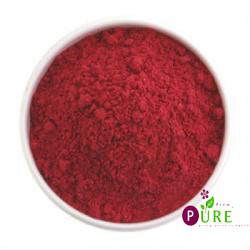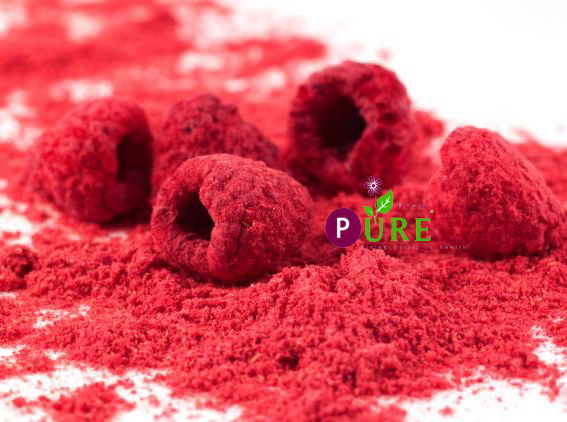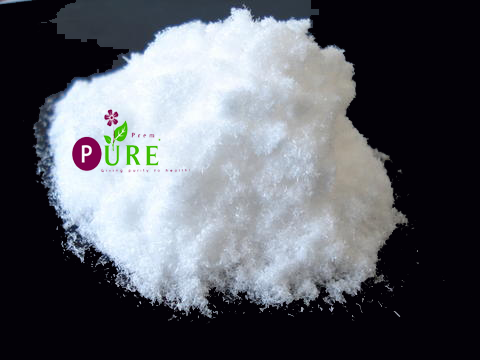Latin Name:Rubus idaeus L.
Raspberry Ketones 98%-99%

 Introduction
Introduction
Raspberries are grown for the fresh fruit market and for commercial
processing into individually quick frozen (IQF) fruit, purée, juice,
or as dried fruit used in a variety of grocery products. Traditionally,
raspberries were a midsummer crop, but with new technology, cultivars,
and transportation, they can now be obtained year-round. Raspberries need
ample sun and water for optimal development. Raspberries thrive in well-drained
soil with a pH between 6 and 7 with ample organic matter to assist in retaining
water.Raw raspberries are 86% water, 12% carbohydrates, and have about 1%
each of protein and fat (table). In a 100 gram amount, raspberries supply 53 calories.
Up to 6% fiber per total weight.Raspberries are a rich source (20% or more of the Daily Value, DV)
of vitamin C (32% DV), manganese (32% DV) and dietary fiber (26% DV) (table). Raspberries are
a low-glycemic index food, with total sugar content of only 4% and no starch. Raspberry Extract
(Fructus Rubi Extract) also Known as Palmleaf Rasberry Fruit in English, Fructus Rubi is known as
Fu Pen Zi in traditional Chinese medicine.t is most commonly found in China, but, with the spread of traditional
Raspberry Ketone has led to an interesting conclusion that raspberries
may be a good source of nutrients that can help lead to weight loss.

Function
Raspberries have been used throughout history as a supplement, as well as in many medicines;
Raspberries are known to be high in antioxidants, which help to keep the body functioning properly
despite the advance of age;Raspberries have also been thought to help relax the blood vessels,
which can help to avoid heart problems and other disorders.
Main Function:
1. Weight loss
2. Control your body’s cholesterol and blood pressure levels
3. Prevent various types of cancer
4. A natural antioxidant
5. Help relieve inflammation